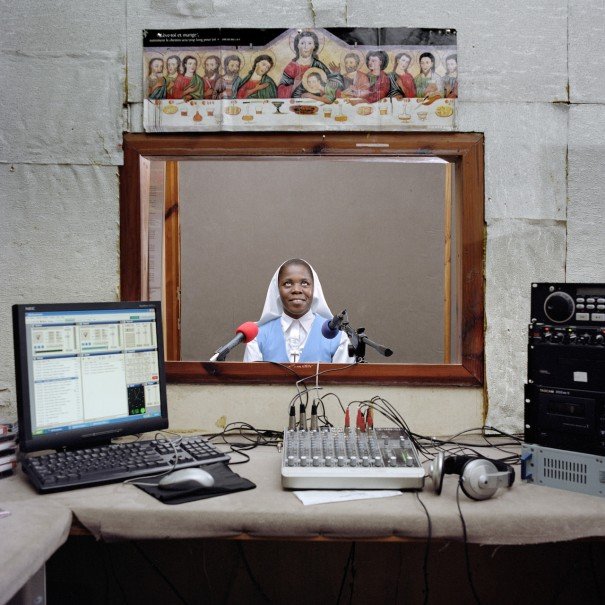
Voice of Haiti: Q&A with Paolo Woods

Photographer Paolo Woods documents life at the radio stations of Haiti.
When the cholera epidemic broke out in Haiti, Paolo Woods was already living in Les Cayes, a city in the south of the country. As photographers flocked to treatment centers, shooting the suffering of tens of thousands of people affected by the disease, he felt he wanted to depict it differently. Cholera was spreading at an alarming speed, but he noticed that one of the most effective ways of fighting it was informing the population through the vast and powerful network of radio stations. Even the most remote areas of Haiti get a signal, and whether listeners heard the UN-sponsored ads describing what to do if they contracted the disease or simply their local DJ reminding them to wash their hands frequently and boil their cooking water, they learned how to protect themselves. Woods photographed radio stations as part of his larger project about life in Haiti, a stunning book co-authored with writer Arnaud Robert, called “State.”
Roads & Kingdoms: What do you need to start a radio station in Haiti?
Paolo Woods: Very little actually. You need a transmitter, an antenna and some electricity. If you have money, you buy a generator, in that case you have electricity 24/7 if you can pay for fuel. If you don’t, you just rely on the city’s electricity, which actually has become better. Now we have about 10 hours of electricity a day.
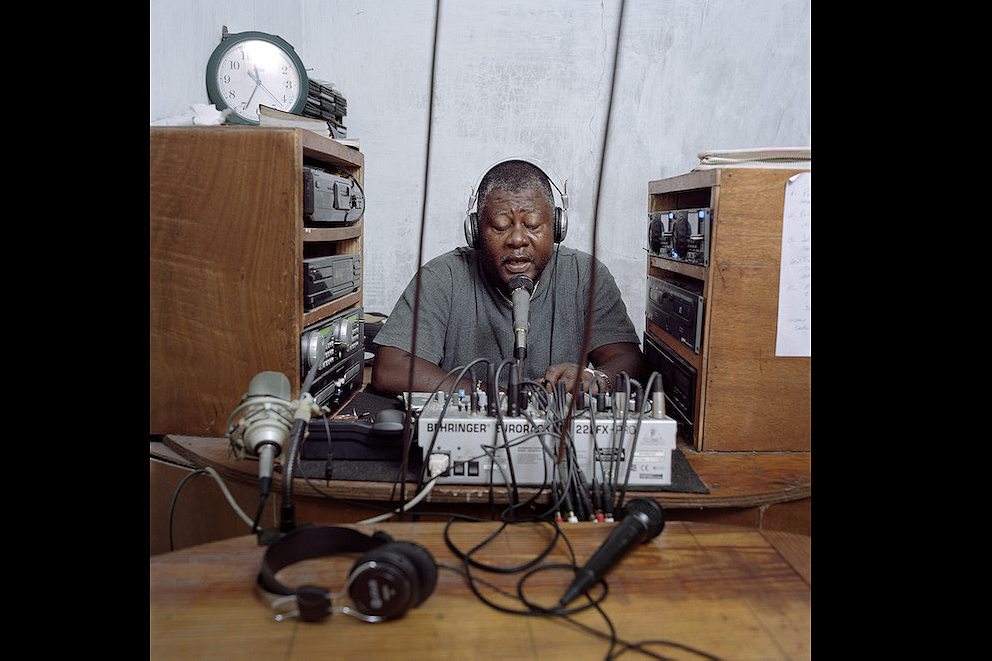
R&K: What is the role of radio in Haiti versus in Europe or in the US?
Woods: It’s different in the sense that it’s condensed what the history of radio has been in Europe in a very short period. Since Baby Doc left power in 1986, private radio has flourished. And radio is I would say the chief media in Haiti for a number of reasons. It’s affordable to get a station set up, if you’re a listener you can buy a transistor radio very cheaply, and also most phones that you can buy today in Haiti are equipped with FM radios so everybody has one. In a place where electricity is not always available, you just need batteries or it can be crank-operated or solar-operated, so it’s not an issue. Another reason is that almost half of the population in Haiti is illiterate. Television, both on the side of the receiver and the broadcaster, demands more of an investment. So radio very quickly became the chief media in Haiti. Every group that has something to say can create a radio station and broadcast its message. So in a small city like where I live Les Cayes, you have almost 30 different kinds of radios which basically mirror the different components of society.
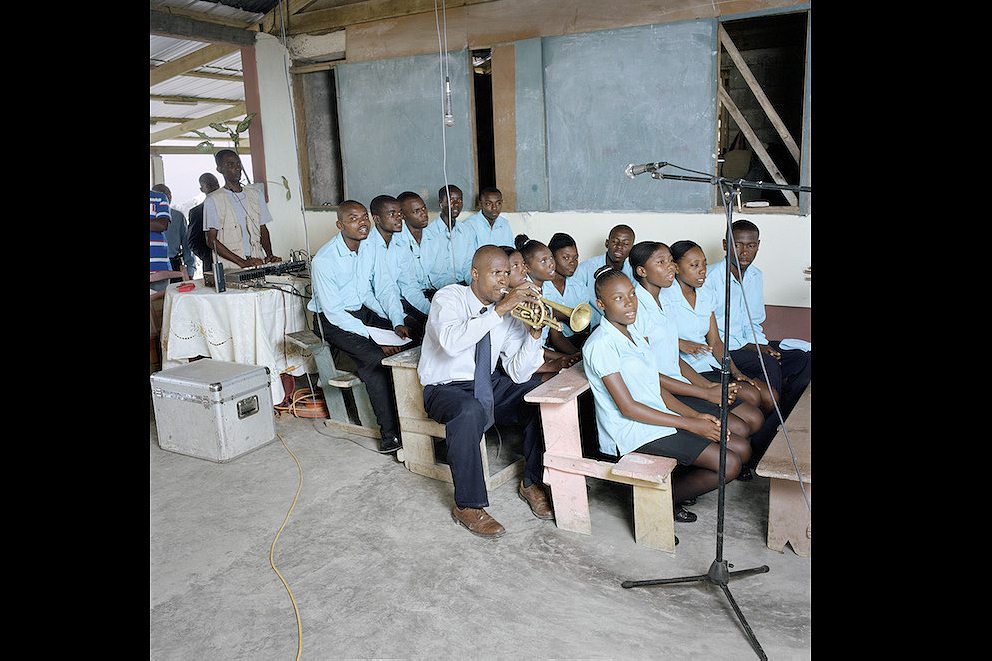
EVERY GROUP THAT HAS SOMETHING TO SAY CAN CREATE A RADIO STATION AND BROADCAST ITS MESSAGE
R&K: Can you talk about a few of these groups and what the atmosphere was like in each of their HQs?
Woods: There are a lot of Protestant radio stations paid by American evangelicals, those are probably the ones who have the most money so the studios are in better shape, they have air conditioning, they broadcast 24 hours a day. They will even have other radio programs coming from abroad. Then you have the Catholic radio station, which is more institutional and run by the Catholic diocese in Les Cayes. But you also have small one-man show kind of radios, and some carry voodoo music or programs around voodoo. If you’re going to the Catholic radio [pictured above] it’s not very rock and roll, you get a lot of spiritual food. Other radios, it’s almost like a night club scene. There are people hanging around, coming in, speaking at the mic. I photograph with a medium format camera so it’s quite long to set up and I often had these places lit because they tend to be dark, so I spent a long time in each. And very often they would ask me to speak in the mic and it’s like a continuous conversation with people popping in and out and asking for a song – the DJ has his phone ringing all the time, with people asking for news or dedications.
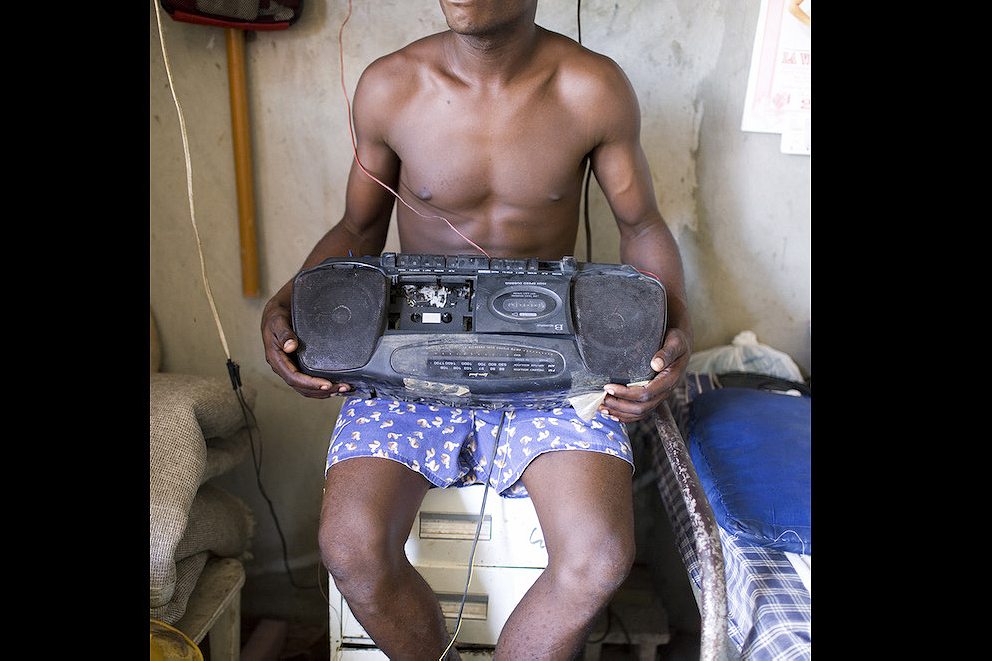
R&K: So some of these successful DJs must become big celebrities?
Woods: Oh yes, they’re celebrities whether political, musical, cultural and obviously religious as well. The mayor of the city here has a radio station, his opponent has one, the local group of young people have one. The spectrum is quite broad.
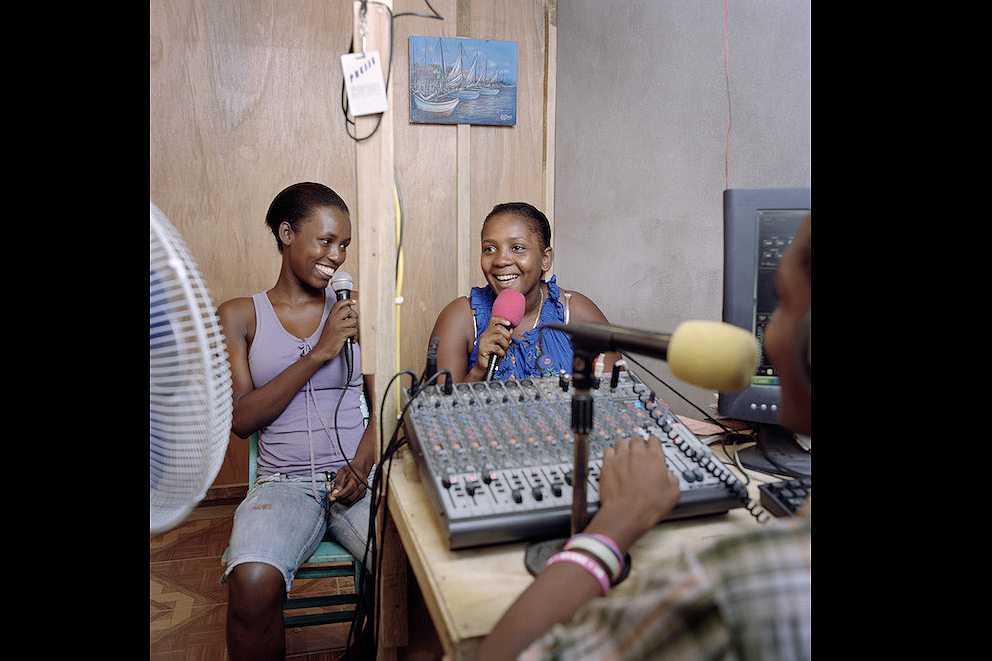
R&K: And the president also used radio to gain popularity…
Woods: Michel Martelly, whose stage name is Sweet Micky was and still is one of the most famous Haitian musicians, so he’s very loved from a musical point of view. His songs are regularly played on the radios and when he decided to run for presidency, he was no one from a political point of view, but very well-known by his listeners. So that gave him more than an edge. It’s funny because opposition radio stations who don’t like his politics still run his music, because that’s part of something broader, something they do respect.
[HAITI] HAS TICKLED OUR IMAGINATION FOR THE LAST 200 YEARS AND I THINK THERE ARE REASONS FOR THAT
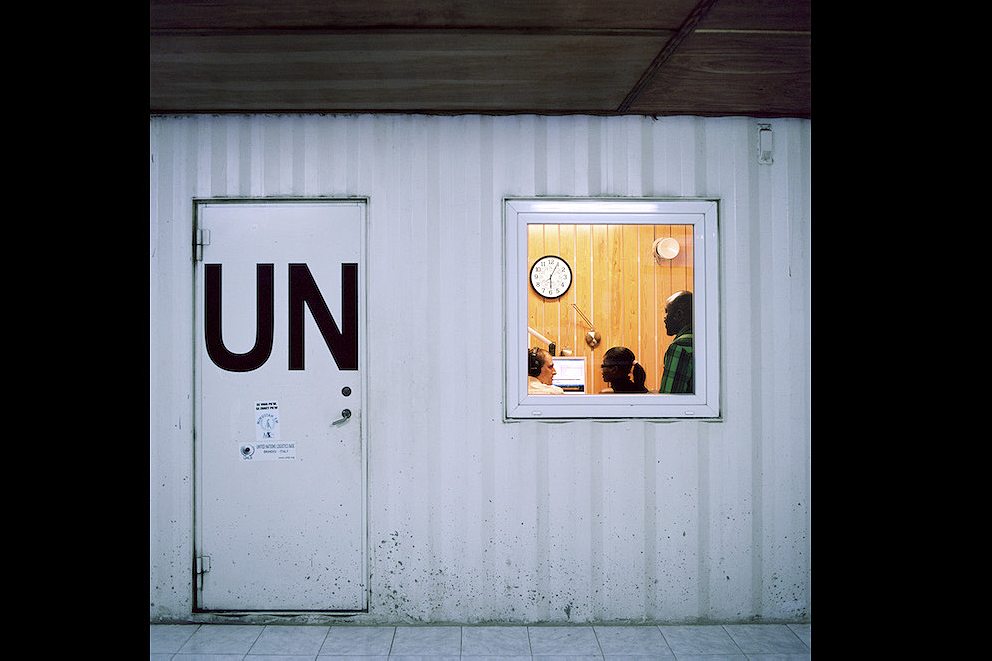
R&K: You’ve lived in Haiti for a little while now, what are your thoughts on the current situation?
Woods: I’ve just published a book that tries to address that question in 300 pages, so I’m not sure I can answer that question briefly. I don’t deny in any way the very serious problems and challenges that Haiti and Haitians are facing, but I do think it’s a country that has an amazing energy and a very particular history and a strong identity. If you think about it, it’s a small country with no geo-strategic interest. It doesn’t have oil, it’s not a nuclear power, it’s not a threat to world stability nor has big diamond reserves… But it has tickled our imagination for the last 200 years and I think that there are reasons for that. It’s a place that you really get attached to. It is a lab of so many things that happen in the world. It’s interesting in its relationship between developing country and the NGO system, it’s interesting because it has a language that is developing rapidly…
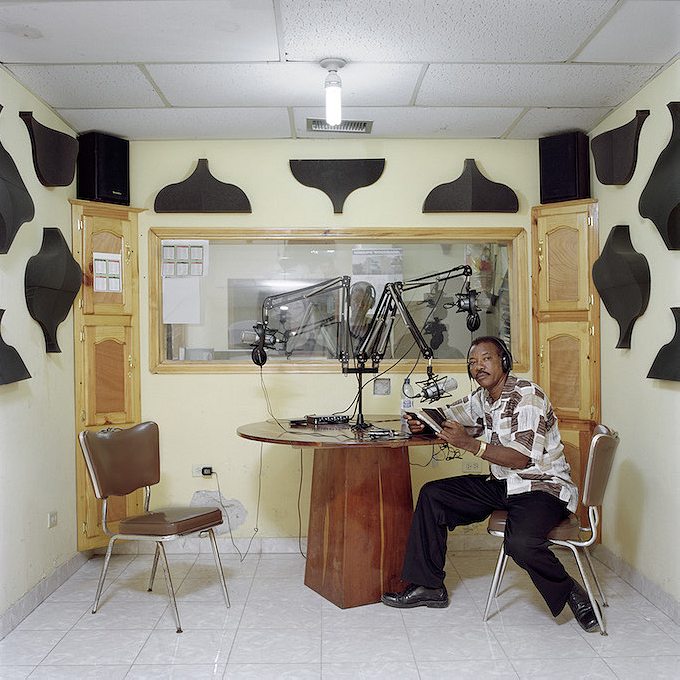
THERE IS ONE PLACE NICKNAMED “RADIO CIA” BECAUSE THEY TRANSMIT THE NEWS OF VOICE OF AMERICA
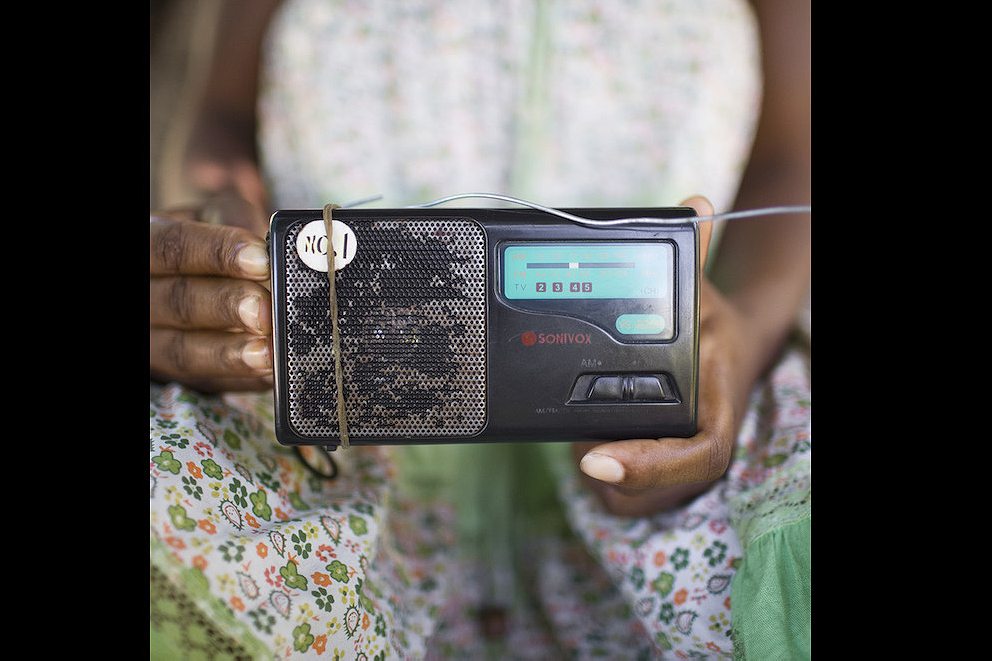
R&K: There are a lot of outside forces that end up in Haiti. You saw that in the radio stations, but is it common in everything else?
Woods: It’s very common. In the view of many different groups, Haiti is a land to be conquered – both in the soul (“let’s conquer the soul of these dangerous Satan-lovers” which many people think voodoo is), or in the economic sense, as a new market… Yes, it is a place that receives a disproportionate attention from the outside. It always has since it became independent. Tawain has a lot of operations in Haiti, Brazil has taken on the UN force there. That was reflected in the radio stations too. There was one place nicknamed “radio CIA” because they transmit the news of Voice of America so people think it’s the CIA loudspeaker. There’s always quite a bit of distrust from Haitians towards outside powers. There’s a radio by the MINUSTAH which is the UN force, which is not particularly loved in Haiti either, and there is also RFI from France…
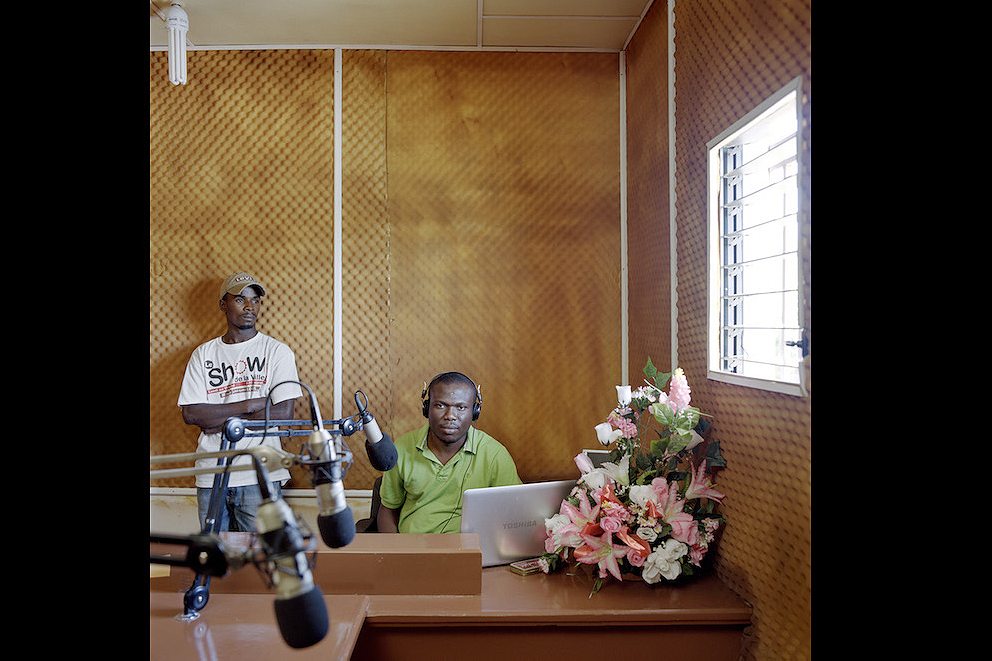
R&K: Did focusing on radio enable you to get a more positive story out of Haiti?
Woods: I never think of a story as positive or negative, because I don’t think there is such a thing. Stories are 360 degrees with positive and negative in them. The world is not divided in good and bad for me. I think reality is so much more complex, so what I try to do is have that complexity in my work. So if I only focus on slums and cholera victims, I miss a part of the picture. But if I only photograph happy, smiling people, I’m also losing a part. So for me it’s not about doing something positive, it’s more about doing something honest. Living there, with the people, it very quickly became clear that one of the big frustrations of Haitians is to always be depicted always as the cursed country.
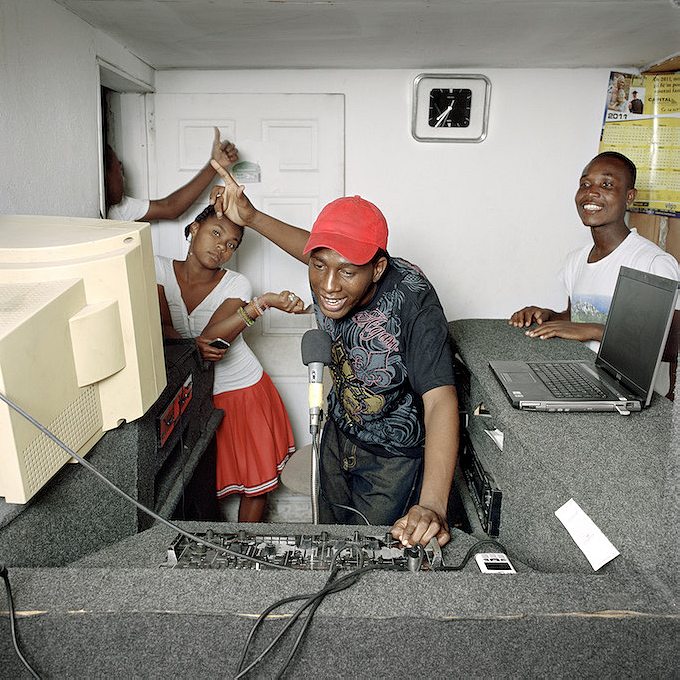
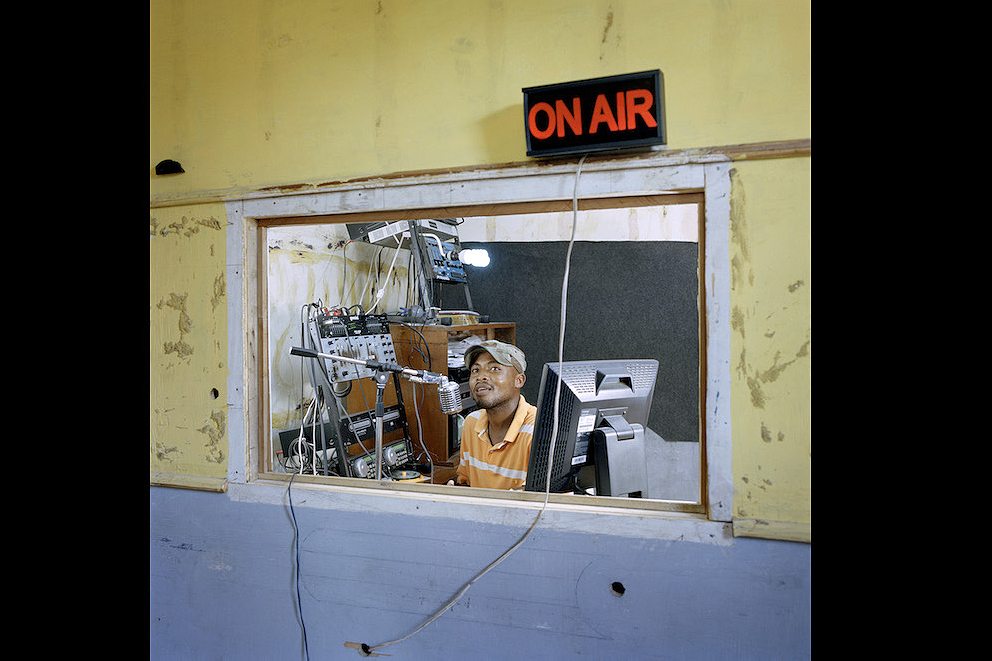
Paolo Woods’ radio series is featured in “State,” published in November 2013. You can see more of his work here.
[Top Image: Radio Men Kontre 95,5 FM. Men Kontre (“united hands” in Creole) is the radio of the Catholic diocese of Les Cayes. Sister Melianise Gabreus is one of the stars of the station.]